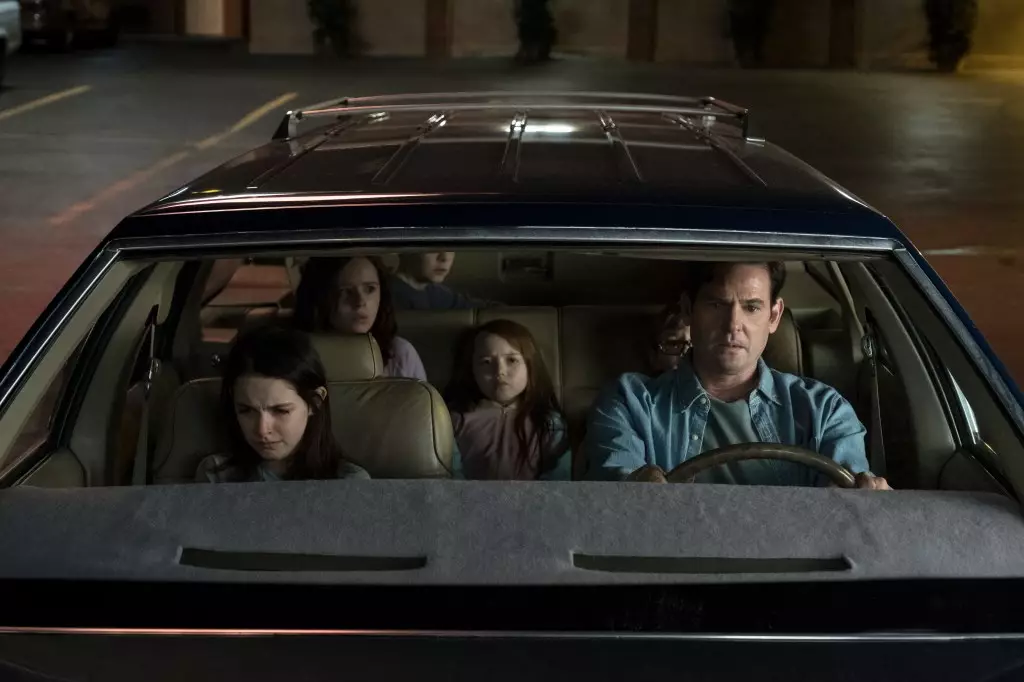Mike Flanagan has emerged as a significant voice in modern horror, not merely for his ability to instill fear, but for his knack for transforming personal tragedy into compelling narratives. At the recent SXSW London, where he unveiled his latest film, *The Life of Chuck*, Flanagan candidly shared how his artistic pursuits have been a lifeline during turbulent times. After the loss of a family member to suicide, Flanagan turned to storytelling as a means of grappling with the heavy emotions surrounding grief and loss. His acclaimed Netflix series, *The Haunting of Hill House*, serves as a poignant representation of this process, with the character Nell Crain’s tragic arc echoing the complexities of his own experience. “There are images in that that are dreams and nightmares I had during that time,” Flanagan reflected, underscoring the deeply personal nature of his storytelling.
This therapeutic nature of creation is a powerful reminder that art does not just exist for entertainment; it can be a vital tool for processing life’s harsh realities. Flanagan’s willingness to bring his grief into the public sphere resonates with viewers, offering them a sense of solidarity and understanding. By exploring themes of loss, addiction, and redemption through horror, he sheds light on subjects that are often shied away from—transforming anguish into art that is both haunting and healing.
The Cultural Perception of Horror
In his SXSW dialogue, Flanagan highlighted an enduring bias against the horror genre that plagues both the industry and its audiences. Despite the undeniable artistry present within horror films, the genre often struggles to gain the respect it deserves. Flanagan pointed to the intermittent acknowledgment of horror’s narrative depth through milestone projects like those of Jordan Peele, which momentarily elevate the genre’s prestige, only for the cycle of misunderstanding to resume soon after. He lamented, “People outside the genre remain perpetually surprised that there is a really good story in here and it’s not just about the scares.” Here, Flanagan captures a critical issue; clever storylines and intricate character foundations frequently lie beneath the surface of jump scares and paranormal phenomena.
This cycle of misperception feeds into a broader societal context where horror is relegated to mere entertainment. Flanagan, however, is committed to challenging this notion through his work, seeing horror as a means to explore deep emotional truths and foster discussions about human experience. His belief that horror can be both artistically rich and profoundly human underscores his vision as a director who crafts narratives rather than simply orchestrating fear.
Exploring the Heart of Stephen King’s Legacy
Flanagan’s connection to Stephen King is particularly noteworthy within this conversation. While King is often categorized as a horror writer, Flanagan asserts that this label is reductive. Describing King instead as a “gooey-hearted, lovely humanist,” Flanagan emphasizes the emotional and relational core of King’s storytelling. In this light, horror emerges not solely as a thrilling mechanism but as a conduit for exploring nuanced themes of friendship, fear, and the human condition. The true horror often lies not in the supernatural, but within the emotional landscapes that King so deftly navigates.
Flanagan’s insights reveal his understanding that horror, when effectively executed, reflects raw human emotions and societal issues. This generative view of horror reconnects audiences with the very real struggles they face, be it in personal relationships or broader existential crises.
Championing Artistic Expression
Emphasizing the importance of monologues in film, Flanagan advocates for maintaining narrative depth against a backdrop of commercial pressures that frequently push for shorter, faster-paced storytelling. He passionately argues that the ability of an actor to convey layers of meaning through spoken word is an art form worthy of preservation. The ritual of storytelling, particularly within horror, involves a delicate balance of pacing and emotional weight, and Flanagan reminds us that longer, contemplative moments are essential for cultivating genuine audience engagement.
In a world increasingly driven by quick consumption, Flanagan challenges filmmakers and studios to resist the urge to oversimplify narratives. His call to action stresses that powerful storytelling exists beyond the bounds of instant gratification—an acknowledgment of the deep, sometimes challenging dialogues we enter when engaging with art.
Through his work, Mike Flanagan demonstrates a commitment not only to horror as a genre but to the power of narrative in the face of personal and collective grief. In his hands, horror transforms into a vessel for profound emotional exploration, encouraging both the creator and the audience to confront their fears and embrace their humanity.


Leave a Reply